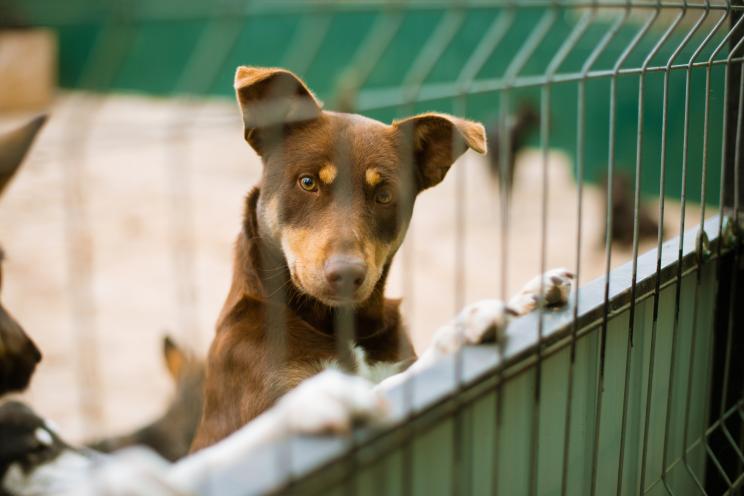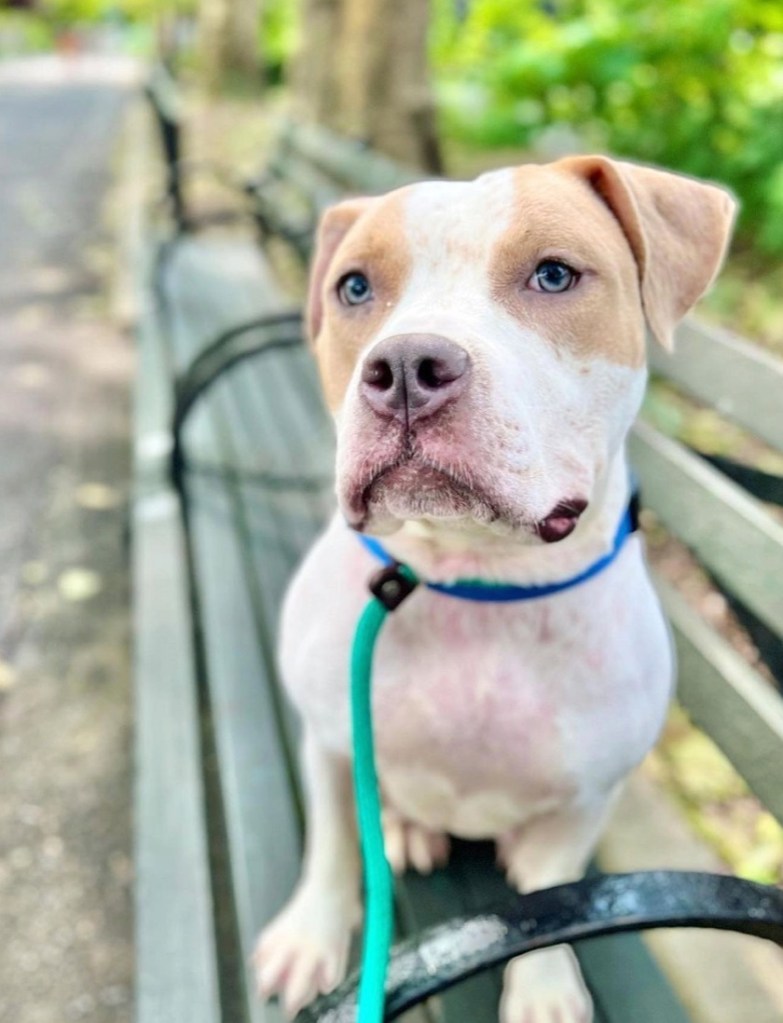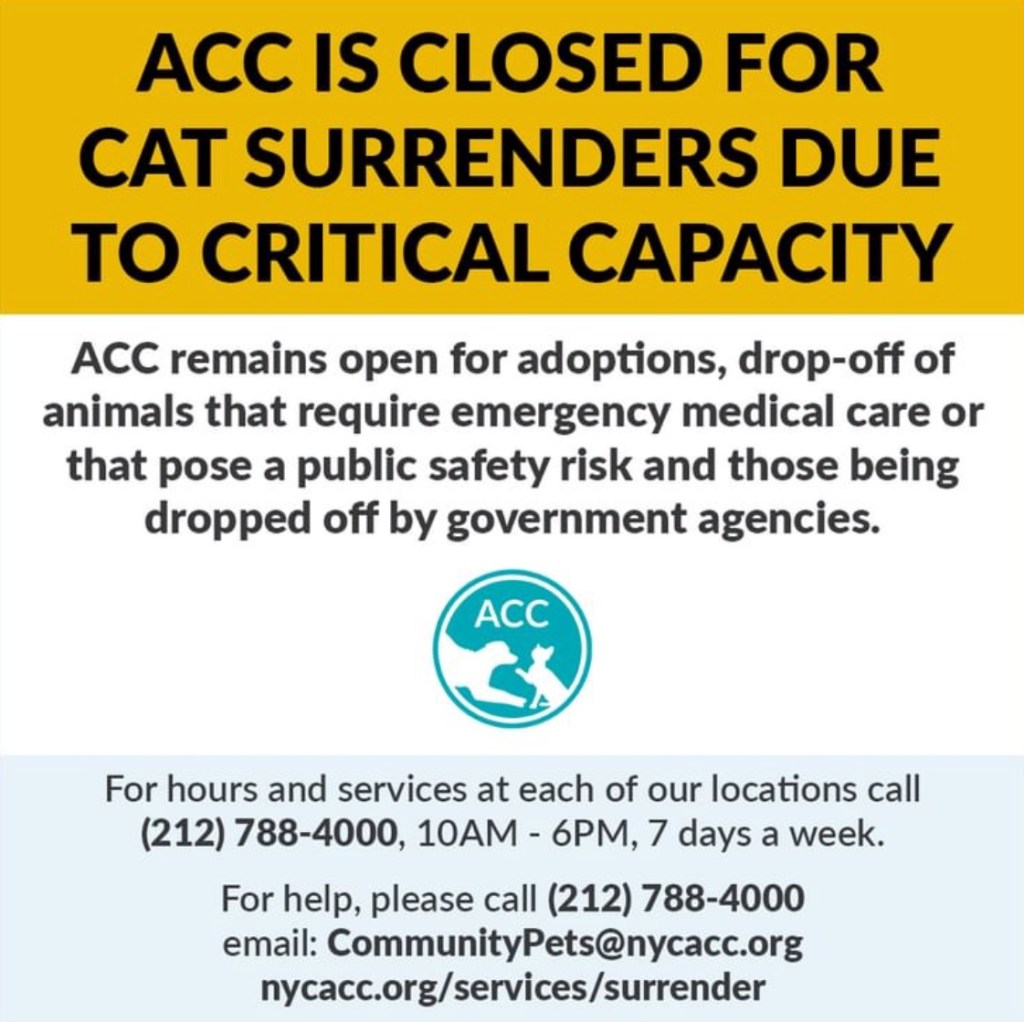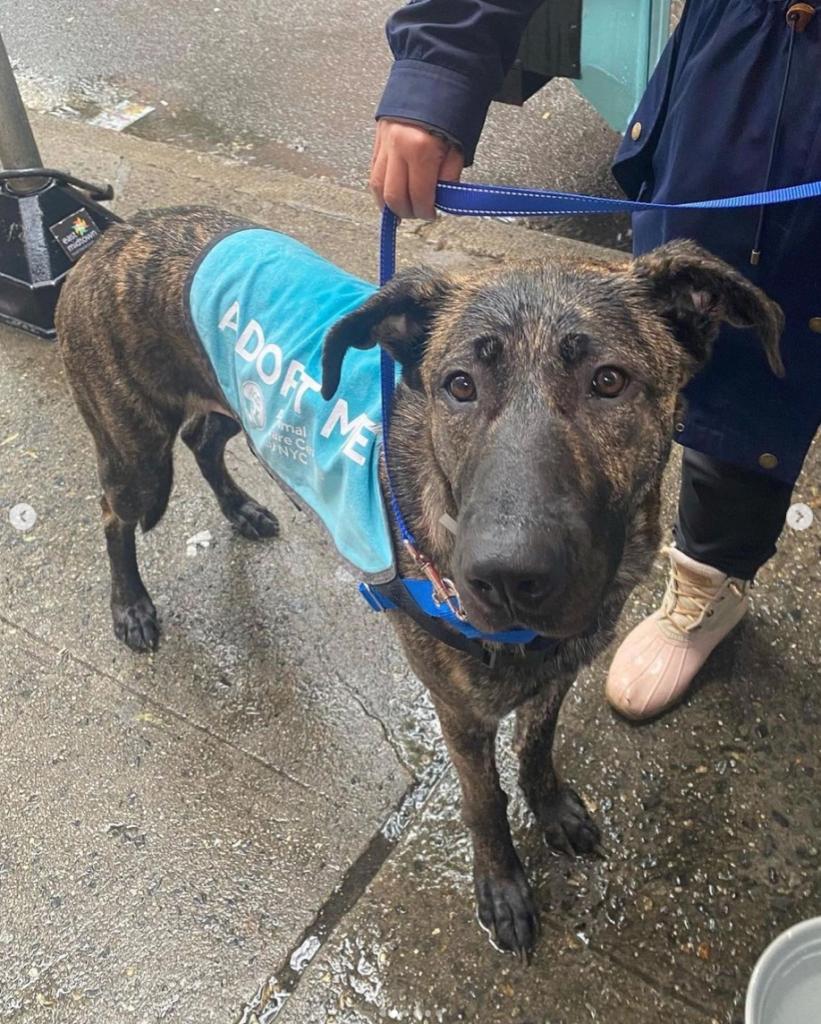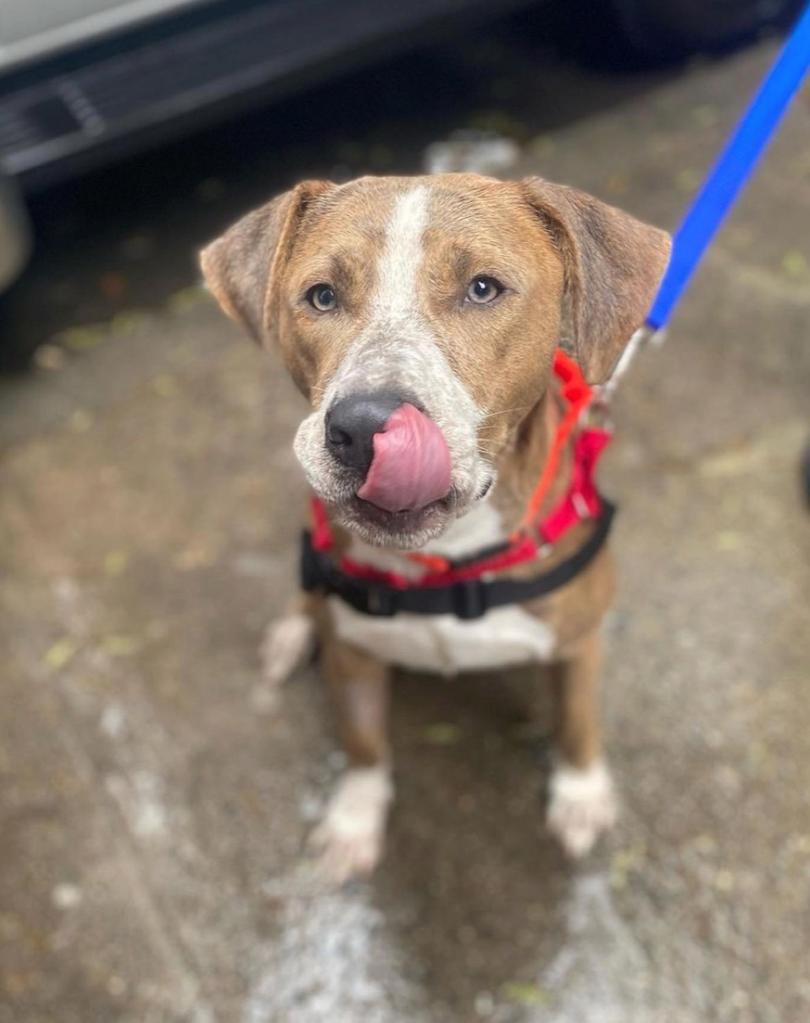Crates spill out into the hallways of the Animal Care Centers of New York City, and more overflow into the shelter’s office spaces.
Across the boroughs, the organization faces an overwhelming increase in surrendered and rescued pets who are staying longer under their care than ever before.
In June, the ACC saw a 77% jump in canine intakes from last year, according to data provided to The Post, and the animals are staying in the overpopulated shelter for up to 14 days — a phenomenon ACC spokesperson Katy Hansen calls “unprecedented.”
“Intake is increasing, but the placement is not keeping up with the pace of intake,” Hansen told The Post on Friday amid an adoption event for cats following the closure of feline intakes due to capacity issues.
“So our population at any given time is much greater.”
Pre-pandemic, animals remained in the shelter only five to seven days before finding their forever home, even during summer, the shelter’s busiest time of year.
Now, placements and adoptions have become more difficult for both the ACC and shelters across the country, as national dog adoption rates dropped 3% from last year and 10% from 2021.
Overcrowded shelters put animals at a heightened risk for disease and volunteers at a higher risk of burnout.
“Many shelters across the country are seeing increasing proportions of animals with medical and behavioral challenges who require more intensive resources and support for them to succeed in a home,” Joel Lopez, the vice president of the ASPCA Adoption Center, told The Post in a statement.
In New York — ranked one of the most expensive places to be single — living costs have hit record highs, forcing some residents to part ways with their furry friends.
“People are surrendering their animals because of financial difficulties,” said Hansen, who couldn’t provide a definitive reason for the lack of adoptions, but said, “It’s New York City — it’s a really expensive city to live in.”
From January to May of 2023, there were 3,213 animals surrendered to the ACC, an increase of 7% from last year, and nearly 2,800 rescues.
While animal surrenders aren’t new, “pandemic-related” burdens have worsened owner’s abilities to adequately care for their pets.
“Long before the pandemic, the lack of access to pet-friendly housing and affordable veterinary care was already forcing families to make the difficult choice to part with their pets,” Lopez said.
He added, “As pandemic-related financial and housing security concerns continue to evolve, the devastating economic hardships of poverty and inflation are creating challenges for millions of pets in addition to people.”
The ACC has leaned on its partners, such as the ASPCA, for support.
For nearly 30 years, Lopez said, the two organizations have “created and sustained comprehensive and effective animal care programs in New York City,” helping the likes of Trixie, a 3-year-old pit bull whose previous owners abandoned and tied her to the ACC gates last year.
But even as the shelter’s capacity overflows, there is a glimmer of hope — Friday’s ACC adoption bonanza was “packed” with eager adopters.
“We’re super psyched about that,” Hansen said, adding that she hopes future events will follow suit.
“We’re just trying to figure out,” Hansen said, “out of the nine million New Yorkers that live here, could we just get 500 to come in and adopt?”








